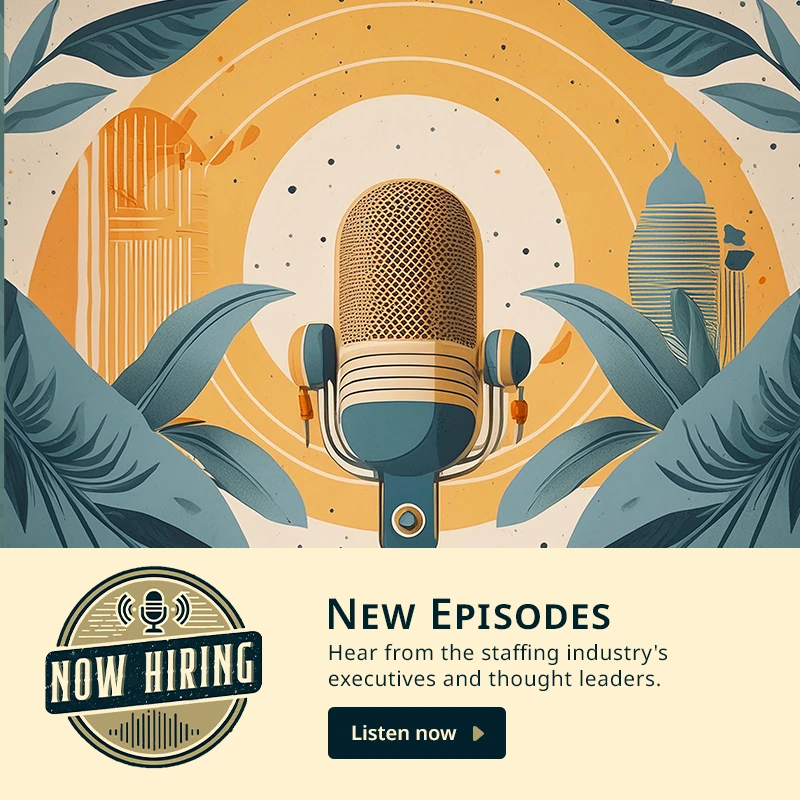Panelists discuss advanced talent acquisition technology and the future of work. Key topics included the ways in which technology can help recruiters overcome talent scarcity challenges and the potential for advanced tech to empower industry professionals.
Below is the full recording of this session, as well as a quick summary to learn more about the various topics discussed.
Watch the Replay
Presenters: Sathidevi S Raj (CIO, Randstad India); Varun Gautam (Global Head, Talent Management & Acquisition, Hexaware Technologies); Vishal Gandhi (Head of Staffing, UK&I, Tata Consultancy Services)
The Talent Landscape is Changing. How Can Technology Empower HR & Talent Acquisition Professionals to Meet This New Landscape Successfully?
Panelists agreed that technology has already taken center stage in the changing talent landscape. Meeting the future successfully means adopting advanced tech.
- When safety concerns over COVID-19 forced the workforce to go remote, it became clear that technology was a necessary component of today’s business model. With technology, there are little to no limitations on the work that can be done remote. This has wide implications for the workforce at large.
- One such implication is that managers will need to better understand and anticipate the changing technological landscape. Companies who invest in reskilling, reinventing, and restructuring their workflows find themselves better prepared to succeed. Those who do not will quickly fall behind.
- But panelists noted that companies will still need to prioritize people. Demographics whose jobs are replaced by automation technologies (such as junior professionals applying for entry-level positions) will need support finding new opportunities in our technology-run landscape.
How is Technology Shaping the Future of Work?
Unanimously, panelists voiced the opinion that the future of work will utilize technology. And yet it will also prioritize distinctly human skill sets.
- The future of work will heavily rely on technology, or the “digital workforce.” Capabilities like artificial intelligence, augmented reality, and robotic process automation will complete manual, day-to-day tasks in less time, for less money.
- As a result, the human workforce will complete distinctly human tasks. Fulfilling humanity’s potential for creativity, innovation, empathy, and engagement, the future workforce will have more time to focus on fulfilling jobs. This will replace manual, “inhuman” jobs.
- The future of recruitment will also change. As technology advances, there will be no boundaries in talent acquisition. With capabilities like passive candidate sourcing, remote eBoarding, and more, companies will increasingly employ & engage a remote workforce.
Distributed, Remote Talent is Quickly Becoming the Norm. How Can Technology Help Both Candidates and Businesses Address This “New Normal”?
Panelists agreed that managing remote work is one of the biggest challenges employers will face in the future. That said, if the challenges are overcome successfully, remote work holds enormous benefits for employers and employees alike.
- Panelists agreed that technology is an indispensable tool for today’s workforce. This is especially true in light of COVID-19. But panelists also agreed that it is not technology, but people, who keep a company afloat.
- With that in mind, employers should make technology decisions based on their workforce—not the other way around. Understanding what kinds of technology your workforce will respond well to ensures that the logistics of remote work will operate smoothly.
- As remote work becomes the “new normal,” companies should take advantage of the opportunities this model provides. Demographics who were previously barred from certain job types, such as women at home with children, are now on a level playing field with their competitors. Tapping into this demographic may help businesses become more diverse & inclusive.







